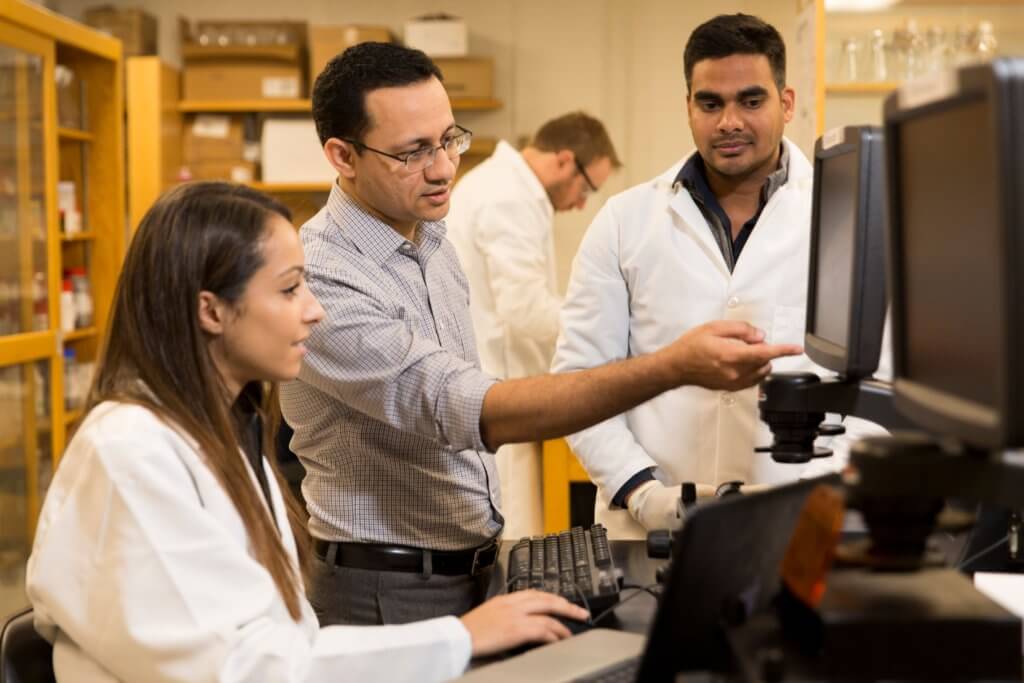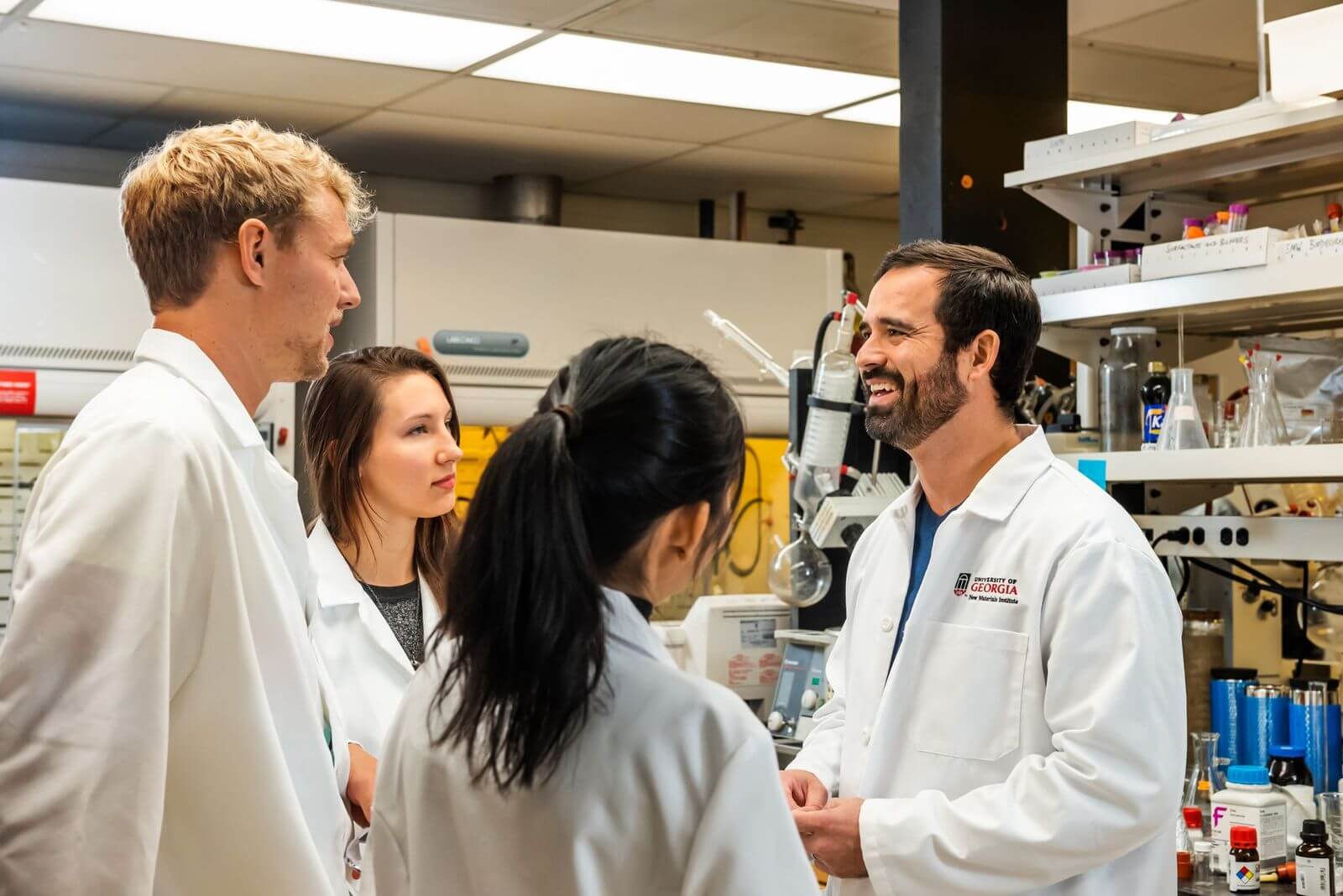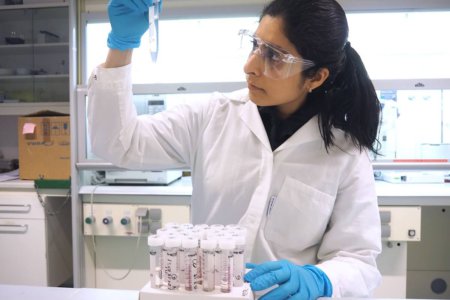Chartered by the state of Georgia in 1785, the University of Georgia (UGA) is the birthplace of public higher education in America. Here, students draw on UGA’s vast experiences and faculty expertise for a world-class education. Engineering graduates who want to engage in world-changing research, become part of a thriving research community, and apply new knowledge and skills to advance society should know that UGA’s School of Chemical, Materials and Biomedical Engineering is the place to be.
At the School of Chemical, Materials and Biomedical Engineering, learning begins with bedrock scientific principles that remain the same wherever they are taught — from Athens to Atlanta and beyond. It balances rigorous theory and real-world practice; boasts of student camaraderie and professor access; and leadership opportunities and collaborative expectations, to name a few. These provide students with the foundations and knowledge to address 21st century challenges.
The School of Chemical, Materials and Biomedical Engineering conducts research in three key areas, focusing on translational and applied research in the areas of biomanufacturing, medical devices and biomaterials, and advanced therapeutics.
Work conducted in associate professor Hitesh Handa’s laboratory is an excellent example of how an interdisciplinary background can be fruitful in one’s research and career. “My vision is to combine my background of engineering, chemistry, and surgery to solve the challenge of infection and thrombosis in a hospital setting,” he explains.

Hitesh Handa’s laboratory is an excellent example of how an interdisciplinary background can be fruitful in one’s research and career. Source: University of Georgia
Handa –– UGA’s Entrepreneur of the Year 2021 –– and his students have studied how nitric oxide can replace antibiotics and silver as a natural mechanism. They’ve also designed wound-healing bandages. None of this would have been possible without the lenses of diverse perspectives.
“Most of my lab members have different backgrounds,” says Handa. “The challenge of thrombosis and infection involves fields of materials, chemistry, molecular biology, microbiology, veterinary animal models, and more. We need these scientists and researchers from vast fields to solve this problem.”
UGA’s highly ranked programmes are an ideal platform for undergraduate students with research interests. Omar Ramos, a biomedical engineering major from Athens, Georgia –– who has a passion for protecting and strengthening the environment –– is having the time of his life at UGA. He was drawn to engineering to understand the fundamentals of why things work and using his knowledge towards real-life applications.
“The state of the environment has always worried me, so being able to attribute something that can potentially help with the environment really spoke to me,” he says. “I am currently working in a lab that looks into how algae can be used to help make some processes more environmentally friendly. It piqued my interest with the environmental impact this process could potentially have.”
He understands that research involves time and plenty of hard work before something tangible that benefits the environment could materialise, but he’s more than willing to put in those years. “Even if the impact turns out to be insignificant, doing something is a lot better than doing nothing,” he says.
Emily Nieves concurs. This UGA alumna committed her years as a bioengineering major to researching drug discovery. Working in Dr. Melissa Hallow’s lab, she helped build a mathematical model of the kidney’s reabsorption of oxalate to investigate hyperoxaluria. She also explored therapies for diabetes and chronic kidney disease. Her efforts led to a postgraduate position with AstraZeneca. Today, she’s continuing her academic journey with a PhD –– as every aspiring researcher should.

UGA’s highly ranked programmes are an ideal platform for undergraduate students with research interests. Source: University of Georgia
Students can choose from two PhD programmes at the School of Chemical, Materials and Biomedical Engineering.
The PhD in Engineering – Biochemical Engineering Emphasis offers maximum flexibility to students vying to address 21st-century challenges. The 72 credit hour programme enables them to tackle research problems that address the need for sustainable biofuels and bio-based plastics. It also teaches the advancement of technologies to produce high-value chemicals and biopharmaceuticals.
Meanwhile, with the PhD in Engineering – Biomedical Engineering Emphasis, students explore research areas to address the need for new biomaterials for medical devices. This includes devices that prevent infection and coagulation. They will also look into novel stem cell therapies to combat cancer and computational models that understand disease progression and pharmacological treatment.
While many PhD programmes admit applicants with a postgraduate degree, UGA welcomes exceptional and highly motivated students with a Bachelor of Science to apply for the program, provided they have demonstrated research experience.
Ultimately, it’s clear that UGA engages in research that drives progress across vast areas of life, making it an attractive location for aspiring researchers. If your interest is piqued, join UGA on its quest for a better tomorrow by applying here today.
Follow the University of Georgia on Facebook, Instagram, Twitter and YouTube













